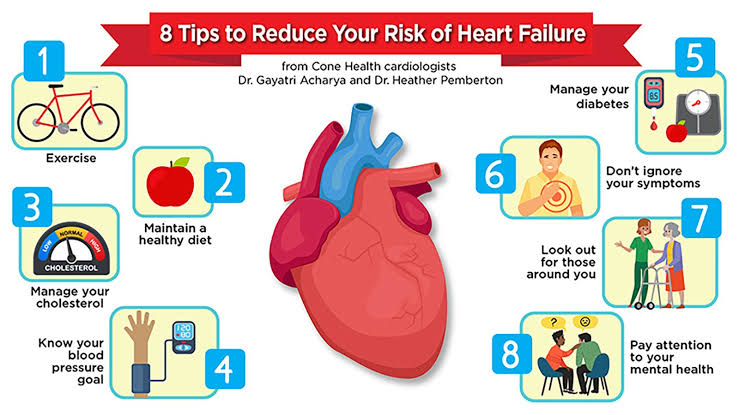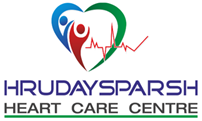Subtotal $0.00
What is Heart Failure?
Heart failure is a lifelong condition in which the heart muscle cant pump enough blood to meet the body’s needs for blood and oxygen.
- What is Heart Failure?
- Heart Failure Treatment
- Symptoms
- Cause
- Management of Heart Failure Patients With Reduced Ejection Fraction




Heart failure, also known as congestive heart failure, is a chronic medical condition in which the heart’s ability to pump blood to meet the body’s needs is impaired. It occurs when the heart muscle becomes weakened or damaged, resulting in the heart being unable to effectively pump blood throughout the body.
In a healthy heart, blood is pumped through the chambers of the heart, delivering oxygen and nutrients to the body’s tissues. In heart failure, the weakened heart muscle cannot pump blood efficiently, leading to a reduced supply of oxygen and nutrients to the body’s organs and tissues.
cardiac infarction can be caused by various underlying conditions, including coronary artery disease, heart attack, high blood pressure, heart valve disorders, congenital heart defects, and certain infections or diseases that affect the heart muscle. Additionally, factors such as advanced age, obesity, diabetes, and a history of smoking can increase the risk of developing cardiac infarction.
Heart Failure Treatment
- Lifestyle modifications :
- Sodium and fluid restriction: Limiting sodium intake to reduce fluid retention and managing symptoms.
- Regular exercise: Engaging in appropriate physical activity and exercise as recommended by the healthcare provider.
- Smoking cessation: Quitting smoking to reduce the risk of further damage to the heart.
- Alcohol moderation: Limiting alcohol intake as excessive alcohol can worsen heart
- Medications :
- Angiotensin-converting enzyme (ACE) inhibitors or Angiotensin Receptor Blockers (ARBs): These medications help dilate blood vessels, reduce fluid retention, and improve heart function.
- Beta-blockers: Used to slow the heart rate, decrease the workload on the heart, and improve heart function.
- Mineralocorticoid receptor antagonists (MRAs): These medications help reduce fluid retention and improve survival in heart failure patients.
- Diuretics: Prescribed to manage fluid retention and reduce symptoms of congestion.
- Sacubitril/valsartan: An angiotensin receptor-neprilysin inhibitor (ARNI) that has shown benefit in reducing mortality and hospitalizations in heart failure patients.
- Ivabradine: Used in select patients with symptomatic heart failure to reduce hospitalizations.
- Devices – such as (ICDs,CRT)
- Surgical interventions
- Heart transplantation
Management of Heart Failure Patients With Reduced Ejection Fraction
Management of heart failure patients with reduced ejection fraction involves a combination of lifestyle modifications, medication therapy, and potentially device-based therapies. Here are some key aspects of the management.
- Lifestyle modifications:
- Sodium restriction: Limiting sodium intake to reduce fluid retention and manage symptoms.
- Fluid restriction: Restricting fluid intake to prevent fluid overload.
- Regular exercise: Encouraging appropriate physical activity and exercise within the patient’s capabilities.
- Smoking cessation: Advising and supporting patients to quit smoking.
- Alcohol moderation: Limiting alcohol intake, as excessive alcohol can worsen heart failure.
- Medications:
- Angiotensin-converting enzyme (ACE) inhibitors or Angiotensin Receptor Blockers (ARBs): These medications help reduce the workload on the heart and improve symptoms.
- Beta-blockers: Used to slow the heart rate and decrease the workload on the heart.
- Mineralocorticoid receptor antagonists (MRAs): These medications help reduce fluid retention and improve survival in patients with heart failure patients.
- Diuretics: Used to manage fluid retention and reduce symptoms of congestion.
- Sacubitril/valsartan: An angiotensin receptor-neprilysin inhibitor (ARNI) that has shown benefit in reducing mortality and hospitalizations in heart failure patients.
- Ivabradine: Used in select patients with symptomatic heart failure to reduce hospitalizations.
- Device-based therapies:
- Implantable cardioverter-defibrillator (ICD): Recommended for patients at high risk of sudden cardiac death due to underlying heart disease.
- Cardiac resynchronization therapy (CRT): Uses a specialized pacemaker to improve the coordination and pumping function of the heart.
- Left ventricular assist devices (LVADs): Considered in advanced heart failure patients who are not responding to optimal medical therapy and are candidates for heart transplantation.
- Regular follow-up:
- Frequent monitoring of symptoms, weight, and blood pressure.
- Periodic blood tests to assess kidney and liver function, electrolytes, and blood counts.
- Echocardiograms or other imaging tests to evaluate cardiac structure and function.
- Patient education and self-care management to promote adherence to medications and lifestyle modifications.





Mediax
December 7, 2023Your health and well-being are our top priorities. We take the time to listen to your concerns, answer your questions.
Mediax
December 7, 2023We understand that every patient is unique, and their healthcare needs may vary. That\'s why we create individualized treatment plans.
Mediax
December 7, 2023Our clinic is strategically located for easy access, ensuring that you can reach us conveniently from various parts of the community.